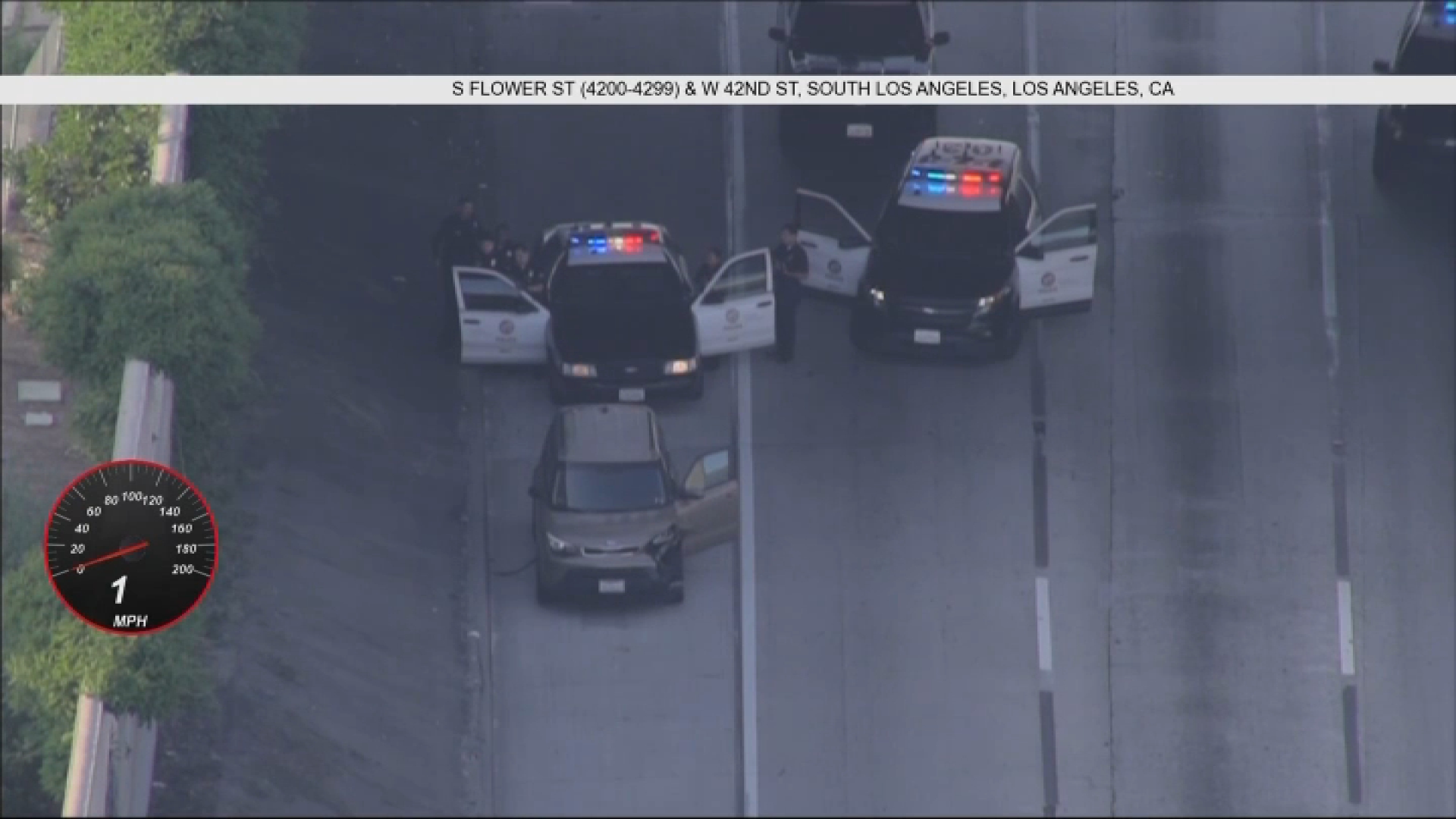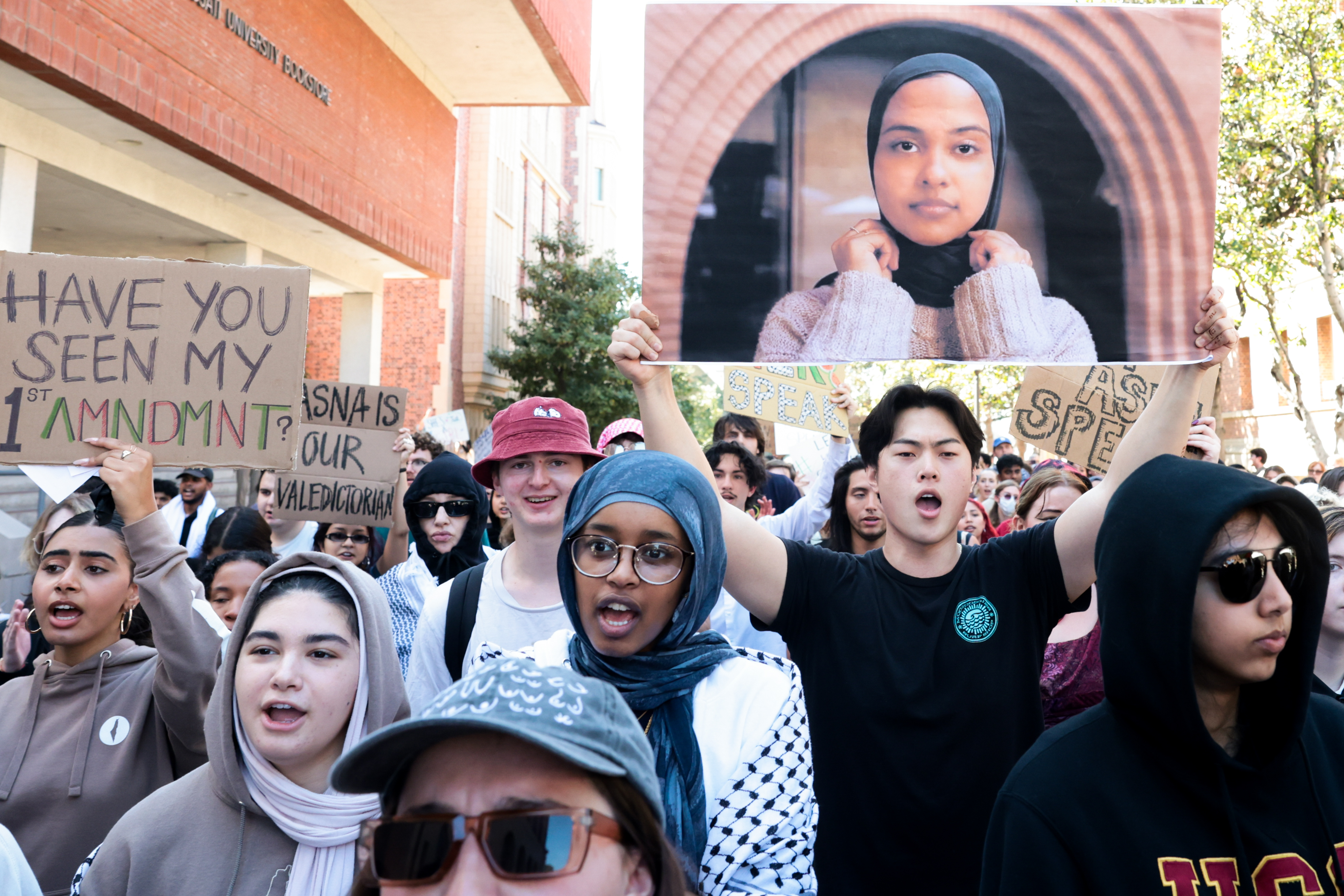The "Grim Sleeper" trial was nearly over Monday after months of testimony about a serial killer targeting black women during the 1980s crack cocaine epidemic in South Los Angeles.
Lonnie Franklin Jr., 63, faces the death penalty if convicted of killing nine women and a 15-year-old girl between 1985 and 2007. All were shot or strangled, and their bodies were dumped in alleys and trash bins.
Deputy District Attorney Beth Silverman said in closing arguments Monday that overwhelming DNA and firearms evidence shows Franklin is guilty of murder.
In her closing argument, Silverman showed pictures of all 10 women, including the trash bins and alleyways in South Los Angeles where each victim was found dead.
"These victims were all human beings, and they suffered from the same frailties and same imperfections that all humans do. Yhey also had the same hopes and same dreams for their futures," she said.
Franklin has pleaded not guilty in the slayings, and the attempted murder of a woman who survived a gunshot and got away.
Perhaps the most riveting witness against Franklin is the only woman known to have survived the serial killings. She described being shot in the chest and sexually assaulted in 1988. Then, she noticed her attacker taking a Polaroid picture of her before pushing her out of his car.
When Franklin was finally arrested 22 years later, the same photograph -- showing the wounded woman slouched over in a car -- was one of many pictures found in his possession, prosecutors said.
Franklin was connected to all ten victims named in this trial through either ballistics or DNA evidence, prosecutors said.
Local
Get Los Angeles's latest local news on crime, entertainment, weather, schools, COVID, cost of living and more. Here's your go-to source for today's LA news.
Many of the victims were prostitutes; others used cocaine. Franklin targeted women who were "willing to sell their bodies and their souls in order to gratify their dependency on this powerful drug," prosecutor Beth Silverman told jurors.
Before his arrest, a police officer posed as a pizza parlor busboy to collect DNA samples from dishes and utensils Franklin used at a birthday party.
Franklin's defense questioned the DNA evidence. Amster told jurors that many victims had DNA from more than one man on their bodies, and that more than 20 DNA tests excluded his client.
"His DNA were probably on more women out there then we'll ever know. I don't know if that's right, I don't know if that's wrong. Certainly not the way many of us would live our lives," he said.
Both Silverman and Amster acknowledged disliking each other, and at times held heated arguments in the courtroom out of the jury's hearing.
At one point, Amster even yelled at Superior Court Judge Kathleen Kennedy after she ruled that he would have to refile a subpoena.
"I am now going to rest. We have no defense," Amster declared, prompting gasps in the courtroom. "I cannot represent this man any further." However, he continued on with the case.
The family members of the victims say they have bonded over the course of the trial, sharing their grief. The sister and the cousin of one victim were convinced on what the verdict should be.
"I can't speak for anyone, but I feel death penalty," said Kenneitha Lowe, sister of Mary Lowe, who was killed in 1987 at age 26.
"We just want justice to be served for all of the victims," said Tracy Williams, Mary Lowe's cousin.
Authorities dubbed him the "Grim Sleeper" because the killings attributed to him stopped from 1988 to 2002. Dozens of police officers had failed to solve the case in the 1980s, and the renewed killings prompted the creation of a special task force. Franklin was finally arrested in 2010.
The closing arguments began with prosecutors after the judge delivered jury instructions on Monday. The process could last two days.
Copyright Associated Press



